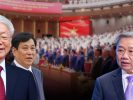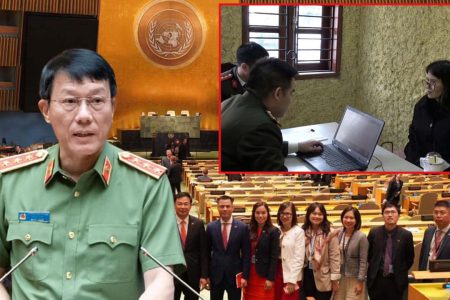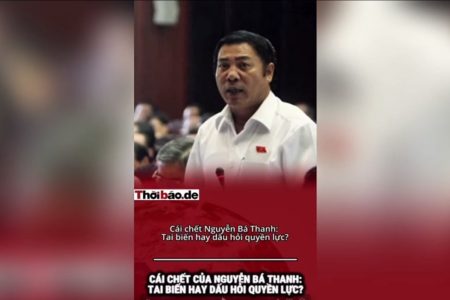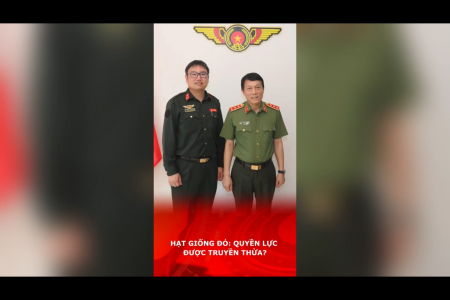
The phone call over the weekend between Vietnamese newly-appointed Foreign Minister Bui Thanh Son and Chinese State Commissioner cum Foreign Minister Wang Yi was reported by the media of the two countries.
The two sides‘ narrative of the conversation highlights a number of different points. In addition, the content of the conversation also attracted diverse responses.
Different news
Wang Yi, according to Chinese media, emphasized that „both countries are attached to the leadership of the communist parties, as well as the Socialist path.“
“As comrades and brothers, China will continue to commit to supporting Vietnam to follow the socialist path for a better future,“ Wang Y was quoted by the Chinese media.
He also reminded Vietnam of a common mission:
“In the face of rare changes in the past century, the two sides need to remember their original mission, which is to strengthen trust and solidarity, strengthen strategic cooperation and protect the common interests. This not only helps preserve the political security of the two countries and adds a strong impetus to the socialist ideal of the world, but is also completely in line with the progressive and development trend of the times.“
Summary of the talks by Vietnam’s state-controlled media did not mention much about the “socialist road”
“Minister Bui Thanh Son affirmed that the preservation and development of the traditional friendship and comprehensive strategic cooperation partnership between Vietnam and China have always been identified by Vietnam as one of the top priorities in Vietnam’s foreign policy.“
Regarding the South China Sea issue, while Wang Yi, according to Chinese media, used the phrase “properly handle matters at sea,“ the Vietnamese state-controlled newspaper wrote very carefully about Vietnam’s demand for ways of dispute resolution:
“The two sides exchanged sincerely and frankly on maritime issues, and agreed to continue promoting the role of the current negotiating mechanisms.
Minister Bui Thanh Son suggested the two sides exchange and resolve disagreements in the spirit of respect for each other’s legitimate rights and interests, mutual agreement and understanding between the two sides, and international law, including the United Nations Convention on Law of the Sea 1982, and together with ASEAN to make positive progress on the COC.“
Comments by Professor Carl Thayer
In an interview with BBC News Vietnamese on April 18, Professor Carl Thayer gave his comment on the phone call:
“China and Vietnam both benefit from a harmonious and durable relationship, good economic and trade policies for both sides, in a stable and prosperous region. More importantly, the close relationship between the two communist parties helps each to maintain one-party rule and control of its economy.”
Wang Yi is acutely aware that the Biden administration has continued the policy that the Trump administration was in progress, declaring that China is America’s biggest strategic challenge.
He also fully understood the implications of President Biden’s strategy in creating a „network of mutual allies and partners, ready and able to protect their sovereignty from bullying. Therefore, his words are designed to address the Vietnamese communist party members, who are conservative ideologically as well as nationalists.“
Professor Carl Thayer commented:
“Wang Yi wanted to remind them that the party within the CPV would lose their position if Vietnam had too closely correlated with the US and lost Chinese support. “
Regarding the South China Sea issue, Professor Carl Thayer outlined:
Wang Yi’s phrase “handle maritime affairs properly” is used to convey a diplomatic signal to the Vietnamese leaders, that the maritime dispute in the South China Sea should be resolved on a bilateral basis without the participation of “non-regional countries,” referring to the US.“
He concluded:
„Since 2003, and reaffirmed a decade later, Vietnam has pursued a policy of ‘cooperation and struggle’ with China. In other words, Vietnam will continue to cooperate with China for the common good and when their national interests are not affected.
China and Vietnam both follow the Socialist path and each country explains socialism in its own way. China can pressure and intervene in Vietnam in many different ways, but they do not tell Vietnam to ‘follow the Socialist line.’
This heavy-handed attitude will erode the basis for the bilateral relationship. What Wang Yi said was meant to remind Vietnam that the US is working to find ways to undermine and overthrow socialism.“
Other reactions?
In the guiding statements in the 13th university, General Secretary Nguyen Phu Trong and Prime Minister Nguyen Xuan Phuc were said to have said fewer sentences about socialist ideology than before.
This trend is considered by journalist Nguyen Giang as “a transformation in the mindset that is very suitable for the international and domestic situation.“
The reporting, as well as the headlines of the Chinese media about the conversation between the two foreign ministers, is therefore considered by some to be suggesting that China is reminding the new leadership in Vietnam about “political stability and its Socialist path.”
Reporting this call on Twitter, Mr. Derek Grossman, an expert on National Security & Indo-Pacific analysis of RAND Corporation, said that the “commitment to support Vietnam follows China’s socialist path” is just a typical topic.
Meanwhile, Mark Buckton, an Asia watchdog, commented, also on Twitter:
Meanwhile, Hanoi continues to separate from [Beijing] more and more in terms of both ideology and economy. A source of mine in Vietnam called these ‚friendship‘ assurances nothing more than a warning to Vietnam to follow the Socialist path.”
Thoibao.de (Translated)


























